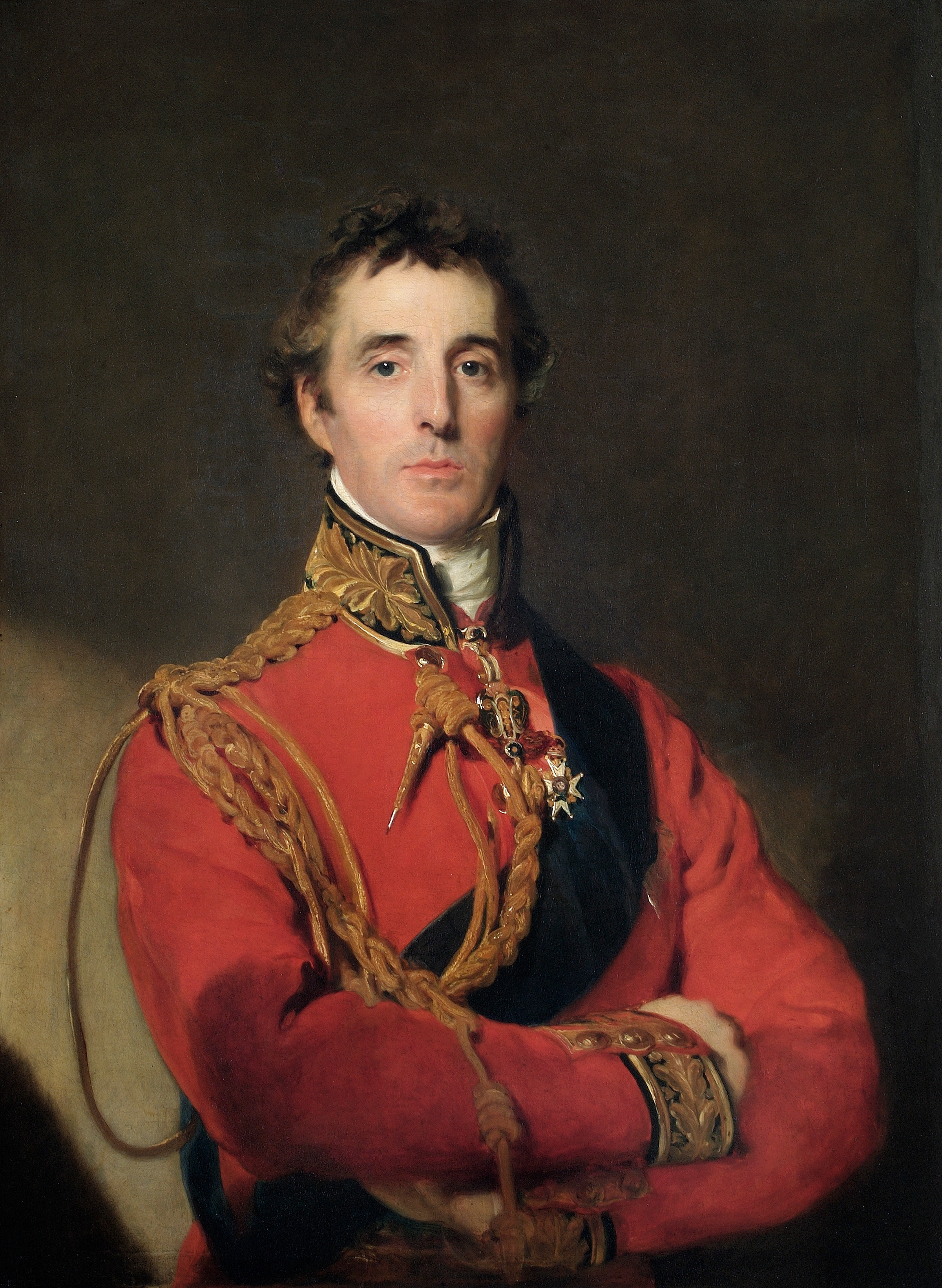Arthur Colley Wellesley, 1.º Duque de Wellington, KG GCB GCH PC FRS foi um marechal e político britânico, primeiro-ministro do Reino Unido por duas vezes.
Wellesley foi nomeado como alferes no exército britânico em 1787. Servindo na Irlanda como ajudante-de-campo para dois sucessivos Lordes Tenentes da Irlanda, ele também foi eleito como membro da Câmara dos Comuns do parlamento irlandês. Como coronel em 1796, Wellesley esteve em ação na Holanda e depois na Índia, onde ele lutou na Quarta Guerra Anglo-Maiçor na batalha de Seringapatão. Ele foi nomeado governador de Seringapatão e Maiçor, em 1799, e como major-general recém-nomeado obteve uma vitória decisiva sobre a Confederação Marata na batalha de Assaye em 1803.
Wellesley aumentou sua relevância como um general durante a Guerra Peninsular das Guerras Napoleônicas, e foi promovido ao posto de marechal de campo depois de liderar as forças aliadas na vitória contra os franceses na batalha de Vitória em 1813. Após o exílio de Napoleão Bonaparte em 1814, atuou como embaixador na França e foi-lhe concedido um ducado. Durante o Governo dos Cem Dias em 1815, ele comandou o exército aliado que, junto com um exército prussiano sob Blücher, derrotaram Napoleão na batalha de Waterloo. O registro de batalha de Wellesley é exemplar, em última análise, participou em cerca de 60 batalhas durante o curso de sua carreira militar.Wellesley era famoso por seu estilo de adaptação defensiva de guerra, e um extenso planejamento antes de batalhas, o que lhe permitia escolher o campo de batalha e forçar o inimigo a vir a ele, que resultaram em várias vitórias contra uma força numericamente superior, minimizando suas próprias perdas. Ele é considerado um dos maiores comandantes de defesa de todos os tempos, e muitas das suas táticas e planos de batalha ainda são estudadas em academias militares ao redor do mundo.
Ele foi duas vezes o primeiro-ministro pelo partido tory e supervisionou a aprovação do Roman Catholic Relief Act 1829. Ele foi primeiro-ministro entre 1828 e 1830 e serviu brevemente em 1834. Foi incapaz de impedir a aprovação do Reform Act 1832 mas continuou como uma das principais figuras na Câmara dos Lordes até à sua aposentadoria. Ele permaneceu comandante em chefe do Exército Britânico até à data da sua morte.
Wikipedia
✵
1. Maio 1769 – 14. Setembro 1852
•
Outros nomes
Arthur Wellesley, I duca di Wellington,
Duca di Wellington
